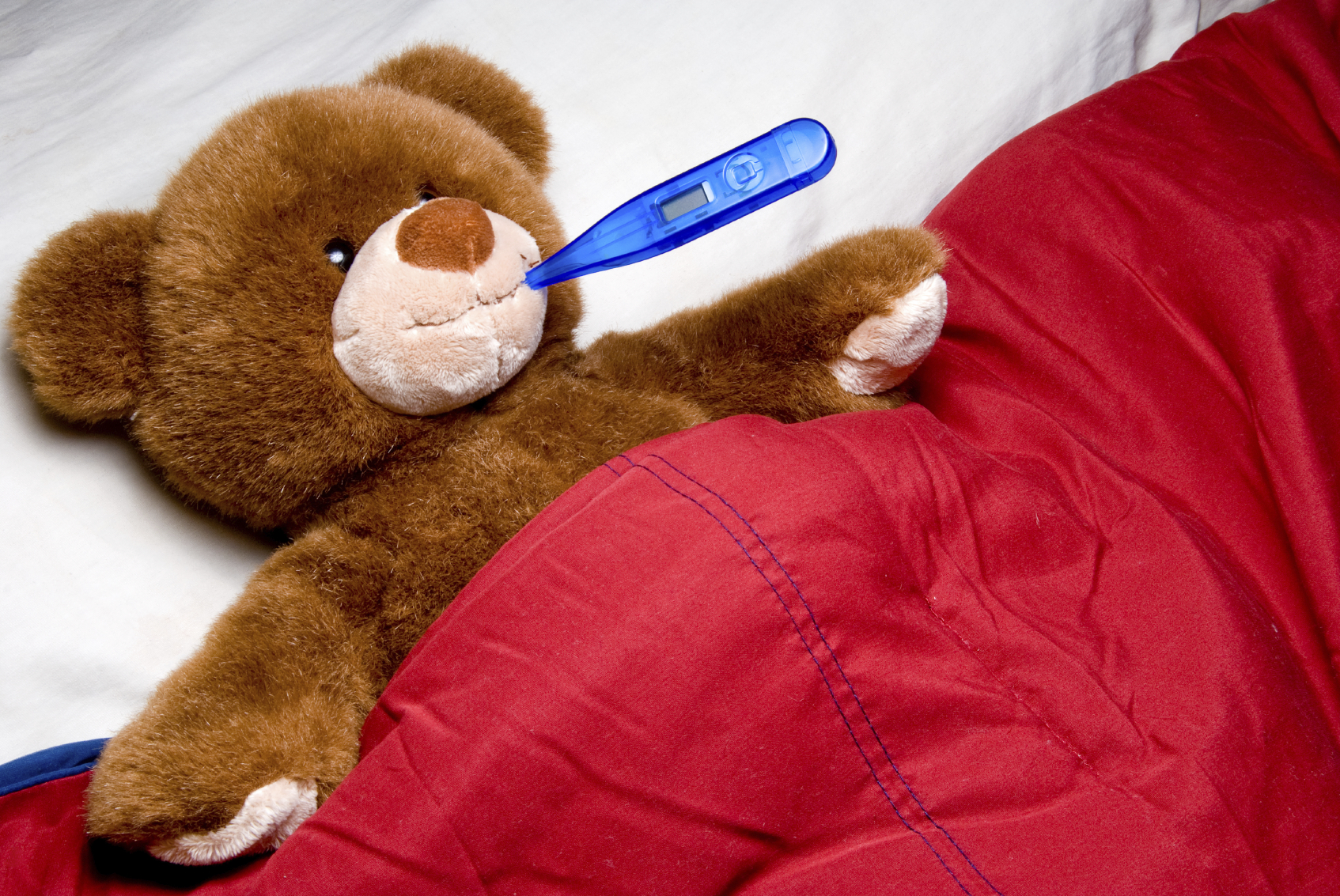
When I enrolled my daughter in full-time child care at age 3, the bouts of coughs, runny nose, fevers and tummy upsets were neverending.
I conducted scores of Google image searches for weird rashes: Hand, foot and mouth disease made an appearance (that was fun). I knew the pediatrician’s RN so well, I considered asking her out to lunch — just for, you know, being there to answer my questions again. And again. And again.
Judging by the neighborhood playground chatter, many parents were similarly embattled. “I was up all night three nights in a row!” Ugh.
No one wants to see a child sick. The restless nights can take a family-wide toll, especially when two parents are working full time.
And yet, sickness happens. According to the American Academy of Pediatrics, most children will have 8 –10 colds in the first two years of life alone. In our bleary-eyed states, we parents can be forgiven for not seeing the positive side of all this. But there is a silver lining to the sickness cycle: Early illnesses may play a role in making us healthy later on.
According to one Australian study, kids who attended group day cares were less likely to get sick once they started public school. Another Canadian study published in JAMA Pediatrics found similar results: Children in group care had more ear and respiratory infections early on than children who stayed home, but come elementary school, kids who had attended group cares reported far fewer of these infections.
“Episodes of minor infections early in life may rev up the child’s body to make immune factors that can protect against future infections as the child grows older,” says Dr. Dawn Nolt, a pediatrician specializing in infectious diseases at Oregon Health Sciences University Doernbecher Children’s Hospital.
Minor illnesses, in other words, are a part of childhood — and all kids will get sick sooner or later. That doesn’t mean, however, that we should throw up our hands, holler c’est la vie, and let the viruses take over our lives. Far from it. During cold and flu season, prevention is still a family’s very best friend. (Read more below about when to keep your kids home.)
Here are the top five things you can do to keep your family healthy — and your child care community healthy, too. After all, we’re all in this parenting thing together!
1. Wash your hands. Wash their hands. Wash everyone’s hands. A lot
Hand washing — and helping kids learn to do so properly — is a big thing at KinderCare Learning Centers because hand washing works. Parents can contribute to the health of the community by keeping up the good hand-washing practices at home. Our rule of thumb in our centers is that children must lather their hands while singing “Row, Row, Row Your Boat” twice. The goal is to equate hand-washing with happy time. So do what you can to make it fun, whether that involves dinosaurs, dancing, or some water-play time. Hands should be washed after coming home from school, playing with pets, before eating, after eating, and of course, after using the restroom or changing diapers.
2. Know the sick policy
We all want to keep our communities healthy. Make sure you know your child care’s policy on when a child must stay home due to illness In fact, this is a great question to ask a center before deciding where to enroll. Your center should have a well-developed plan and policy in place for a range of illnesses — and they should be able to answer your questions about it.
3. Honor the sick policy
You wouldn’t want anyone else sending their kids to school with a terrible cough. Find yourself absolutely positively having to go to work? You should …
4. Make sure you’ve got a back-up buddy system
If your child does get sick, you may need a back up to your back up. Before you start school, get a go-to friend or trusted caregiver on your authorized pickup list for that one day when your child needs to stay home — but you have a big meeting you can’t miss. My neighborhood friend saved my bacon twice. I paid her back with plenty of playdates at my house. Okay, and a bottle of pinot noir.
5. Boost their nutrition
Getting your kids plenty of rest and plenty of nutritious whole foods helps keep immune systems strong. For an at-a-glance primer on healthy eating, check out our list of 12 products to help prevent and treat winter illness, and also Harvard’s School of Public Health’s Plate Power.
And remember, as is oft-said in this joyfully mad journey of parenting, this too shall pass.
When to keep him home
Illness happens, and our goal is to keep our whole community of learners safe and healthy. To reduce the spread of illness, we ask parents to help us by honoring our illness policy (sometimes referred to a “temporary exclusion” policy). All illness, and the specific policies around them, are different, but we ask that parents keep their children home if they exhibit the following symptoms:
- Fever of greater than 100°F without use of fever-reducing medication, especially with behavior- change symptoms that prevent a child from participating in classroom activities.
- Diarrhea or stool frequency of two or more above what is normal for the child or diarrhea that can’t be contained in a diaper.
- Vomiting with fever or vomiting more than two times in 24 hours.











